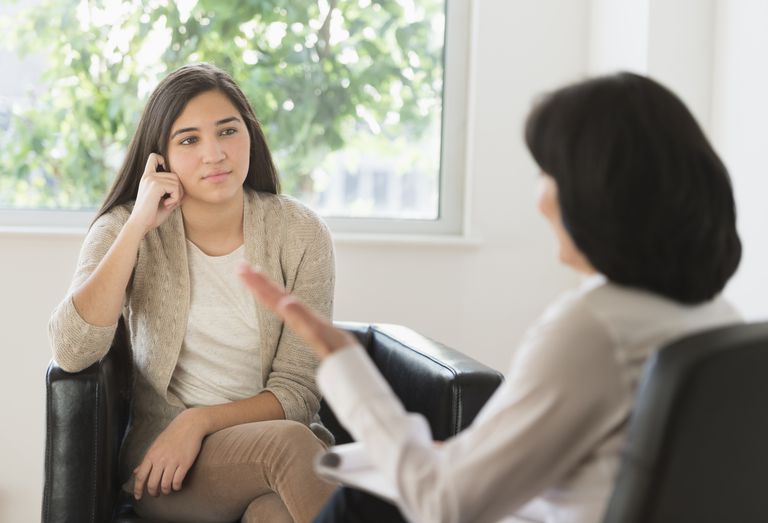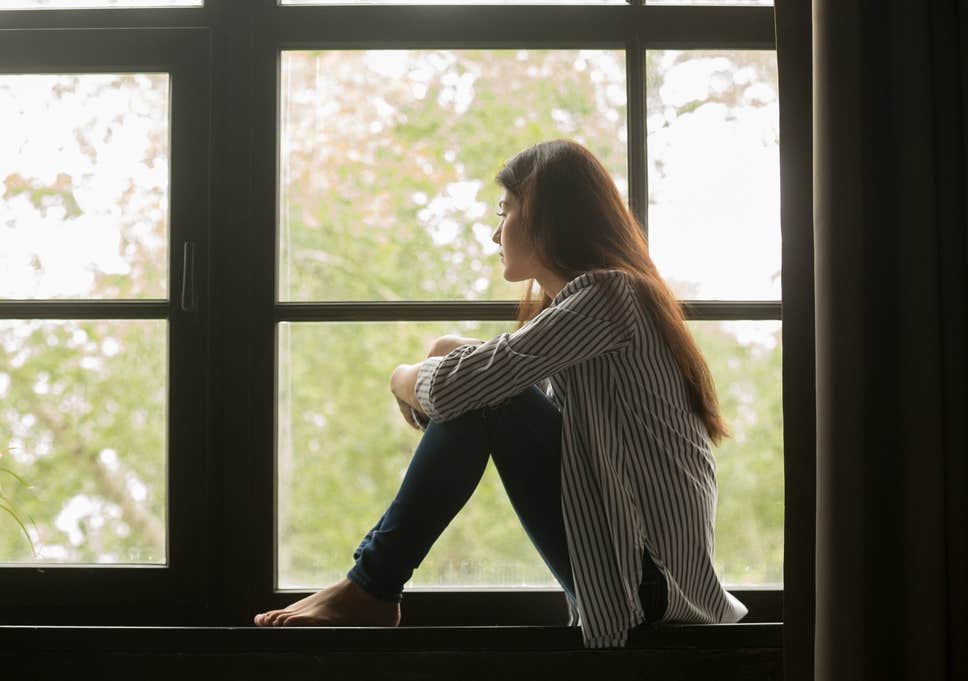
Everyone goes through periods of deep sadness and grief. These feelings usually fade away within a few days or weeks, depending on the circumstances. But profound sadness that lasts more than two weeks and affects your ability to function may be a sign of depression.
Some of the common symptoms of depression are:
- Deep feelings of sadness
- Dark moods
- Feelings of worthlessness or hopelessness
- Appetite changes
- Sleep changes
- Lack of energy
- Inability to concentrate
- Difficulty getting through your normal activities
- Lack of interest in things you used to enjoy
- Withdrawing from friends
- Preoccupation with death or thoughts of self-harm
Depression affects everyone differently, and you might only have some of these symptoms. You may also have other symptoms that aren’t listed here. Keep in mind that it’s also normal to have some of these symptoms from time to time without having depression.
But if they start to impact your day-to-day life, they may be the result of depression. There are many types of depression. While they share some common symptoms, they also have some key differences.
Here’s a look at six types of depression and how they affect people.
Major Depression
Major depression is also known as major depressive disorder, classic depression, or unipolar depression. It’s fairly common. In fact, about 5% of the people in the U.S. have experienced at least one major depressive episode.
People with major depression experience symptoms most of the day, every day. Like many mental health conditions, it has little to do with what’s happening around you. You can have a loving family, tons of friends, and a dream job. You can have the kind of life that others envy and still have depression.
Even if there’s no obvious reason for your depression, that doesn’t mean it’s not real or that you can simply tough it out.
It’s a severe form of depression that causes symptoms such as:
- Despondency, gloom, or grief
- Difficulty sleeping or sleeping too much
- Lack of energy and fatigue
- Loss of appetite or overeating
- Unexplained aches and pains
- Loss of interest in formerly pleasurable activities
- Lack of concentration, memory problems, and inability to make decisions
- Feelings of worthlessness or hopelessness
- Constant worry and anxiety
- Thoughts of death, self-harm, or suicide
These symptoms can last weeks or even months. Some people might have a single episode of major depression, while others experience it throughout their life. Regardless of how long its symptoms last, major depression can cause problems in your relationships and daily activities.
Persistent Depression
Persistent depressive disorder is depression that will typically last for two years or more. It’s also called dysthymia or chronic depression. Persistent depression might not feel as intense as major depression, but it can still strain relationships and make daily tasks difficult.
Some symptoms of persistent depression include:
- Deep sadness or hopelessness
- Low self-esteem or feelings of inadequacy
- Lack of interest in things you once enjoyed
- Appetite changes
- Changes to sleep patterns or low energy
- Concentration and memory problems
- Difficulty functioning at school or work
- Inability to feel joy, even at happy occasions
- Social withdrawal
Though it’s a long-term type of depression, the severity of symptoms can become less intense for months at a time before worsening again. Some people also have episodes of major depression before or while they have persistent depressive disorder. This is called double depression.
Persistent depression lasts for years at a time, so people with this type of depression may start to feel like their symptoms are just part of their normal outlook on life.
Manic Depression (Bipolar Disorder)
Manic depression consists of periods of mania or hypomania, where you feel very happy, alternating with episodes of depression. Manic depression was a term commonly used in the past. Today, manic depression is best termed as someone having bipolar disorder.
In order to be diagnosed with bipolar disorder, you usually need to experience an episode of mania that lasts for seven days, or less. You may experience a depressive episode before or following the manic episode.
Depressive episodes have the same symptoms as major depression, including:
- Feelings of sadness or emptiness
- Lack of energy
- Fatigue
- Sleep problems
- Trouble concentrating
- Decreased activity
- Loss of interest in formerly enjoyable activities
- Suicidal thoughts
Signs of a manic phase include:
- High energy
- Reduced sleep
- Irritability
- Racing thoughts and speech
- Grandiose thinking
- Increased self-esteem and confidence
- Unusual, risky, and self-destructive behavior
- Feeling elated, “high,” or euphoric
In severe cases, episodes can include hallucinations and delusions. Hypomania is a less severe form of mania. You can also have mixed episodes in which you have symptoms of both mania and depression. There are actually several types of bipolar disorder.
Depressive Psychosis
Some people with major depression also go through periods of losing touch with reality. This is known as psychosis, which can involve hallucinations and delusions. Experiencing both of these together is known clinically as major depressive disorder with psychotic features.
Hallucinations are when you see, hear, smell, taste, or feel things that aren’t really there. An example of this would be hearing voices or seeing people who aren’t present. A delusion is a closely held belief that’s clearly false or doesn’t make sense. But to someone experiencing psychosis, all of these things are very real and true.
Depression with psychosis can cause physical symptoms as well, including problems sitting still or slowed physical movements.
Situational Depression
Situational depression, clinically known as adjustment disorder with depressed mood, looks like major depression in many respects.
But it’s brought on by specific events or situations, such as:
- The death of a loved one
- A serious illness or other life-threatening event
- Going through divorce or child custody issues
- Being in emotionally or physically abusive relationships
- Being unemployed or facing serious financial difficulties
- Facing extensive legal troubles
Of course, it’s normal to feel sad and anxious during events like these or even to withdraw from others for a bit. But situational depression happens when these feelings start to feel out of proportion with the triggering event and interfere with your daily life.
Situational depression symptoms tend to start within three months of the initial event and can include:
- Frequent crying
- Sadness and hopelessness
- Anxiety
- Appetite changes
- Difficulty sleeping
- Aches and pains
- Lack of energy and fatigue
- Inability to concentrate
- Social withdrawal
Atypical Depression
Atypical depression refers to depression that temporarily goes away in response to positive events. Despite its name, atypical depression isn’t unusual or rare. It also doesn’t mean that it’s more or less serious than other types of depression.
Having atypical depression can be particularly challenging because you may not always “seem” depressed to others, or to yourself. But it can also happen during an episode of major depression. It can occur with persistent depression as well.
Other symptoms of atypical depression can include:
- Increased appetite and weight gain
- Disordered eating
- Poor body image
- Sleeping much more than usual
- Insomnia
- Heaviness in your arms or legs that lasts an hour or more a day
- Feelings of rejection and sensitivity to criticism
- Assorted aches and pains
How do I know which type I have?
If you think you might have any type of depression, it’s important to follow up with a professional therapist. All depression types mentioned here are treatable, though it might take some time to find the right treatment for you.
If you’ve had a previous bout of depression and think it may be happening again, contact Foundations Counseling right away.
If you’ve never had depression before, start by calling Foundations Counseling for an initial appointment. Some symptoms of depression can be related to an underlying physical condition that could be addressed.
Try to give your therapist as much information about your symptoms as you can. If possible, mention:
- When you first noticed them?
- How they’ve affected your daily life?
- Any other mental health conditions you have?
- Any information about a history of mental illness in your family?
- All prescription and over-the-counter medications you take, including supplements and herbs?
It might feel uncomfortable, but try to tell your therapist everything possible.
We are always here to help the people residing in McKinney, Plano, Dallas, Denton, Allen, Garland, and the surrounding communities found throughout Texas. If you believe that you are experiencing major depression or another type of depression, or you know someone who may be, please contact our certified therapist team at Foundations Counseling today.





























